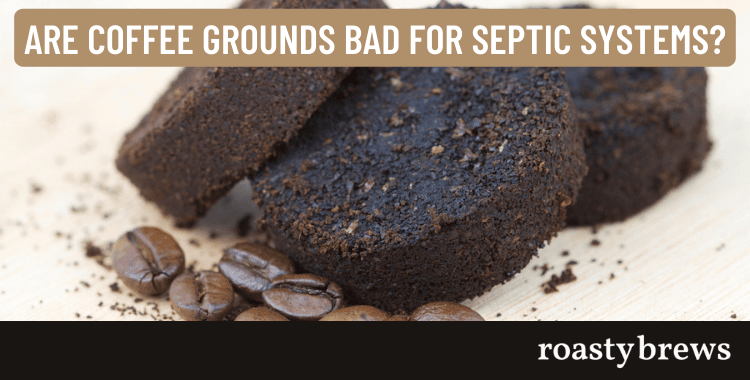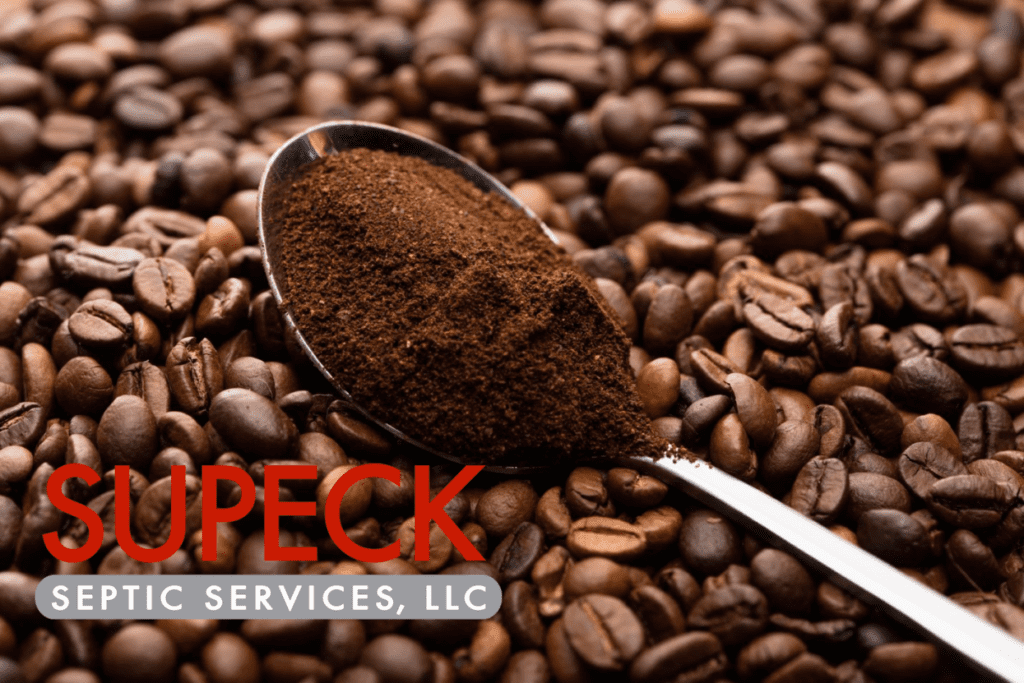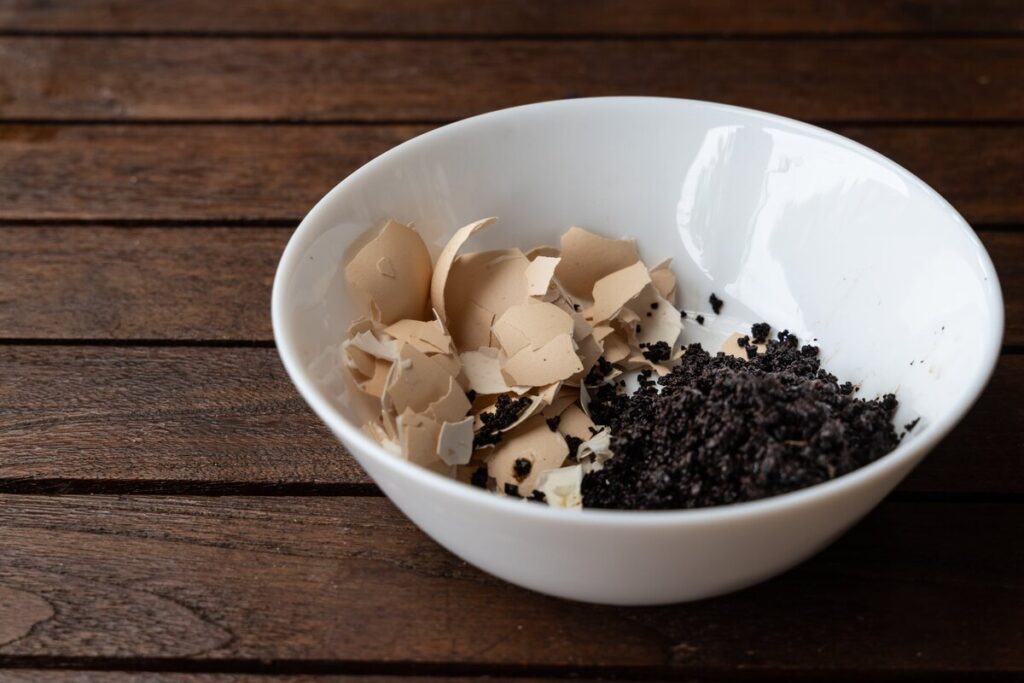Coffee grounds are an everyday kitchen waste product, but have you ever wondered if they are safe for your septic system? In this article, we will explore the impact of coffee grounds on septic systems and uncover whether they pose any harm or potential benefits. So, before you toss those coffee grounds down the drain, let’s find out if it’s a thumbs up or thumbs down for your septic!

The Impact of Coffee Grounds on the Septic System
Understanding the Composition of Coffee Grounds
Coffee grounds contain various organic materials such as lignin, cellulose, and sugars. When these grounds are discarded into the septic system, they introduce additional organic matter into the system’s ecosystem. It is essential to understand how coffee grounds interact with the septic system to assess their impact and potential benefits or drawbacks.
How Coffee Grounds Interact with the Septic System
When coffee grounds are introduced into the septic system, they undergo a process of decomposition. Bacteria and other microorganisms present in the septic tank help break down the coffee grounds, releasing nutrients into the system. These nutrients can potentially have both positive and negative effects on the septic system’s functionality.
The Advantages of Using Coffee Grounds in the Septic System
Nutrient Contribution to Soil Health
Coffee grounds can serve as a nutrient-rich addition to the septic system, which can promote overall soil health. As the grounds decompose, they release nitrogen, potassium, and phosphorus, essential elements for plant growth and development. This nutrient contribution can benefit the vegetation surrounding the septic system, potentially enhancing the aesthetics of your property.
Improving the Decomposition Process
The introduction of coffee grounds into the septic system can enhance the decomposition process. The organic matter in coffee grounds serves as a food source for bacteria, increasing their activity and promoting the breakdown of solid waste more efficiently. This improved decomposition process can help maintain a healthy balance of microorganisms in the septic tank and reduce the accumulation of sludge.

The Disadvantages of Using Coffee Grounds in the Septic System
Potential Clogging of Pipes and Drainfield
While coffee grounds can enhance the decomposition process, excessive use or improper disposal can lead to the potential clogging of pipes and the drainfield. Coffee grounds have a tendency to clump together when wet, creating obstructions in plumbing. These obstructions can impede the flow of water and compromise the efficiency of the septic system, leading to costly repairs.
Increased Solid Waste Buildup
Although coffee grounds contribute to the breakdown of organic matter, they also add to the overall solid waste buildup in the septic tank. Excess coffee grounds can accumulate as sediment, leading to an increased need for septic tank pumping and maintenance. Regular pumping is crucial to prevent solids from exiting the tank and causing blockages or backups in the system.
Tips for Safely Using Coffee Grounds in the Septic System
Moderation is Key
To avoid the potential drawbacks, it is important to practice moderation when using coffee grounds in the septic system. A general rule of thumb is to limit the amount of coffee grounds disposed of to a reasonable quantity. Avoid disposing of large quantities of coffee grounds at once, as it can overwhelm the system and increase the risk of clogging.
Proper Disposal Methods
When disposing of coffee grounds, it is advisable to avoid flushing them down the toilet or dumping them down the drain. Instead, consider using alternative methods of disposal. Coffee grounds can be added to compost bins, used as garden fertilizer, or even repel pests when sprinkled around the perimeter of your property. These alternative methods not only prevent potential septic system issues but also provide additional benefits for your garden or landscaping.

Alternative Ways to Use Coffee Grounds
Composting
One of the most effective and environmentally friendly ways to utilize coffee grounds is by adding them to your compost pile. The nitrogen-rich content of coffee grounds complements the carbon-rich materials typically found in compost, creating a balanced mixture that promotes the decomposition process. When incorporated into compost, coffee grounds can enhance the nutrient content and improve the overall quality of the compost, which can later be used as a soil amendment.
Garden Fertilizer
Coffee grounds can also be directly incorporated into garden soil as a natural fertilizer. The nutrients released during the decomposition process can enrich the soil and provide essential elements for plant growth. However, it is important to use coffee grounds in moderation as excessive amounts may alter the pH levels of the soil, potentially affecting the health of specific plants.
Repelling Pests
Coffee grounds have been known to repel certain pests due to their strong scent. Sprinkling coffee grounds around the perimeter of your garden or property can act as a natural barrier, deterring pests such as ants, slugs, and snails. This natural pest control method can help protect your plants without the use of harmful chemicals.
Common Myths Associated with Coffee Grounds and Septic Systems
Myth: Coffee Grounds Help with Drainfield Aeration
Contrary to popular belief, coffee grounds do not aid in drainfield aeration. Excessive use of coffee grounds can actually contribute to clogging and restrict proper airflow within the drainfield. It is crucial to be aware of this myth and take adequate precautions when using coffee grounds in your septic system.
Myth: Coffee Grounds Eliminate Septic Odors
Coffee grounds may temporarily mask septic odors due to their strong aroma, but they do not eliminate the underlying issue causing the odors. It is important to address the root cause of septic odors, such as a malfunctioning septic system, rather than relying on coffee grounds as a long-term solution.

Scientific Studies on Coffee Grounds and Septic Systems
Study 1: Effects of Coffee Grounds on the Biological Activity of Septic Tanks
A scientific study conducted to explore the effects of coffee grounds in septic systems found that moderate use of coffee grounds had a positive impact on the overall biological activity within septic tanks. It was observed that coffee grounds enhanced the growth of beneficial bacteria, which aided in the decomposition process. However, excessive use of coffee grounds hindered the system’s performance and resulted in prolonged degradation of solid waste.
Study 2: Impact of Coffee Grounds on Soil Permeability in Septic Systems
Another study investigated the influence of coffee grounds on soil permeability in septic systems. The findings indicated that coffee grounds, when applied in moderation, had a negligible effect on soil permeability. However, the study emphasized the importance of proper disposal methods and avoiding excessive use to prevent potential issues with clogging and drainage.
Expert Opinions on Using Coffee Grounds in Septic Systems
Septic System Professionals
Septic system professionals generally advise caution when it comes to using coffee grounds in septic systems. While coffee grounds can contribute to the overall health of the system when used in moderation, they caution against excessive quantities that may lead to clogging and other problems. Regular maintenance, including septic tank pumping, remains important regardless of the use of coffee grounds.
Environmental Experts
Environmental experts highlight the potential benefits of using coffee grounds in alternative ways, such as composting and gardening, as they contribute to sustainable practices. However, they also stress the importance of responsible disposal to prevent any negative impact on the septic system. It is crucial to strike a balance between utilization and proper waste management.

Conclusion
In conclusion, coffee grounds can have both positive and negative effects on septic systems. When used in moderation, coffee grounds can contribute to nutrient-rich soil, enhance the decomposition process, and provide alternative uses such as composting and natural pest control. However, excessive use or improper disposal can result in clogged pipes, increased solid waste buildup, and potential septic system issues. It is important to practice moderation, follow proper disposal methods, and consider the advice of septic system professionals and environmental experts. By doing so, you can make informed decisions about the use of coffee grounds in your septic system while maintaining its efficiency and longevity.
